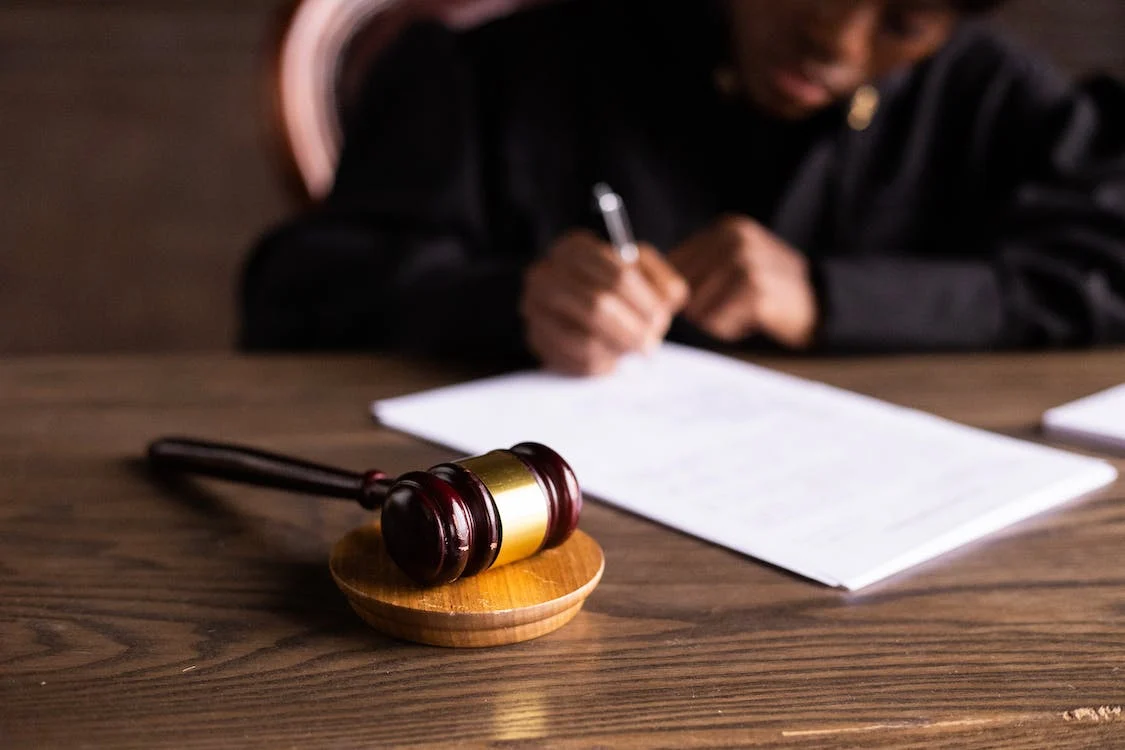
Whether a drug offence is minor or not, charges can significantly impact your personal and professional reputation. Likewise, understanding the most common drug charges and how they can affect you is important.
According to this 2023 report by the Australian Institute of Health and Welfare, illicit drugs in Victoria are heavily connected to the criminal justice system. From 2019-2020, there were 166, 321 national drug arrests.
Did you know that not all drug offences are treated the same? As a criminal law firm in Melbourne with over 10 years of experience, I understand the risks associated with drug offences, and what options are available to you when taken to court.
In Victoria, there are many drugs of dependence, and the most commonly misused drug is cannabis.
For quantities under 50g, where the Court is satisfied it was possessed for personal use, the penalty is 5 penalty units.
For quantities over 50g, the maximum penalty if the court is satisfied that possession is for personal use is 30 penalty units, 1 year imprisonment, or both. If this possession can be proved to be related to trafficking, the court can issue up to 400 penalty units, 5 years imprisonment, or both.
In Victoria, medical cannabis is only prescribed by a handful of qualified doctors, and you cannot drive with THC in your system, even if you have been approved for it medically.
If you drive with medical cannabis in your system, you can be liable for a mandatory license suspension or a fine. Likewise, a prescription for medicinal cannabis cannot be used as a defence in court when charged for being THC-positive.

There are several types of drug-related offences and penalties, and you can avoid these with the help of a reputable criminal defence lawyer across Frankston, Bendigo, and Richmond.
We will now look at what are the most common types of drug offences, including drug possession, trafficking, manufacturing, and distribution.
Possession of drugs is a common drug charge. According to the Drugs, Poisons, and Controlled Substances Act 1981, you can be charged with possession if you have custody of the drug or physical possession of the drug. The higher the quantity, the more severe the drug possession charges and penalties. Keep in mind, this also covers possessing cannabis leaves or stems.
Under the DPCS Act, a person can also be considered in possession of dangerous drugs if the drugs are on any land or premises occupied by the person, or if the drugs have been used, controlled, or enjoyed in any place.
The number of drugs in possession can impact the penalty and sentence. In terms of quantity, there is a clear distinction between small, traffickable, commercial mixed, commercial pure, large commercial mixed, and large commercial pure. The DPCS Act Part 1 has a list of substances categorised by their true weight, Part 2 lists narcotic plants, and Part 3 lists mixed maximum quantities.
Resulting in a lower penalty, a small quantity can refer to 50 grams or less of the dried cannabis plant. This also covers the weight of any substance with which the drug is mixed.
Defined by weight or by the number of plants, a traffickable quantity includes a drug that is mixed or contained with another.
Cannabis is the most common narcotic plant, and its traffickable weight is 10 plants or 250 grams, and includes all parts of the plant. Likewise, a traffickable weight for opium is 50 plants or 100 grams, whereas a coca plant is 500 grams. 25 grams is the quantity for hash oil or hashish.
On the other hand, a cannabis plant can weigh less once dried, so an accused has the right to contest a police botanist certificate or have the cannabis available for a defence-appointed botanist. This can help your case in court.
In regards to other drugs, these are not weighed in only pure amounts, so mixed substances can affect your penalty. Traffickable quantities of mixed-weight common drugs include 3 grams of amphetamine, 3 grams of cocaine, 3 grams of heroin, 150 milligrams of LSD, or 3 grams of MDMA.
A traffickable quantity of pure-weight common drugs can include 50 grams of barbiturates, 7.5 grams of mescaline, 2 grams of methadone, or 0.1 grams of magic mushrooms.
A commercial quantity of mixed and pure weights for drugs can include up to 10 kilograms of THC, 25 kilograms of cannabis, up to 250 grams of heroin, up to 500 grams of amphetamine, up to 500 grams of cocaine, 50 milligrams of LSD, or up to 500 grams of MDMA.
Drug trafficking is the movement from source to user. The charge requires at least one activity within a commercial setting, contact between the alleged trafficker and one other person.
According to the DPCS Act, trafficking can include preparing a dangerous drug for trafficking, manufacturing a drug of dependence, selling, offering to sell, agreeing to sell, exchanging, or possessing an illegal or dangerous drug.
Subsequently, trafficking can include having the intention to sell, arranging one party to sell cannabis to another, or buying drugs for a friend from a third person. This can also include an intent to sell being taken seriously, even if no sale took place.
Cultivating any quantity of a narcotic plant is an offence. This can include cutting a plant, regardless of whether it has roots. Drugs can include cannabis, coca, or opium poppies. Cultivating these drugs can include dividing, transplanting, grafting, tending, harvesting, sowing, or planting narcotics.
If a court is convinced that the cultivation is not related to trafficking, the penalty is imprisonment of no more than 1 year, no higher than 20 penalty units, or both. The maximum penalty for cultivation related to trafficking is up to 15 years imprisonment.
Likewise, cultivating a commercial quantity can result in imprisonment for 25 years. The prosecution needs to prove that the accused had knowledge of the number of narcotic plants being cultivated.
You can be fined for drug driving if you have any drugs in your system while driving a vehicle. In Victoria, you can face disqualification from driving for 6 months or 120 penalty units for a first offence. You may also need to complete an intensive drug driver Behaviour Change Program.
Have you rented out a property that you know is being used for the production, distribution, or consumption of drugs? Whether you benefit financially or not from home being used for illicit drugs, you can still be liable for up to 15 years in prison.
Anyone considering downloading a recipe for crystal meth or any dangerous drug can risk a prison sentence. If you have published a recipe on how to create a drug, this is a crime and can result in up to 10 years of imprisonment.
Drug labs are not only a fire hazard and dangerous to others due to the chemicals used but also illegal in all Australian states and have severe penalties.
According to the DPCS Act, recent offences were added in 2016 and 2017. These include:
Penalty units equal the amount that you need to pay to the court. One penalty unit in Victoria is equal to $192.31 from 1 July 2023 to 30 June 2024. This rate can change every year on 1 July due to inflation.
Obtained from a magistrate by police officers, a search warrant allows officers to search the premises for drugs or for evidence of dangerous drugs. The magistrate needs to have reasonable grounds for belief in drug use. The search covers persons and vehicles, which can be done by force.
Also known as a stop and search, a search without a warrant occurs when there are reasonable grounds for suspecting the presence of illegal drugs. Any devices used to sell, manufacture, or use illegal drugs can be seized immediately.
If a person has been taken into custody on reasonable grounds for concealing drugs, police have the right to search them or their residence.
For minor drug offences, the Victorian Drug Diversion Program is designed to assist people in quitting illegal drug dependence and help them work toward rehabilitation.
This is typically the route for young offenders. Instead of going through court, there is an opportunity for offenders under the influence to quit with the help of professionals, such as drug counselling and therapies.
Where drugs are found on a property or vehicle the accused controls, the accused can be guilty unless they can prove they were not in possession. This is known as a deeming provision or shifting the burden of proof from the accused to another.
Circumstances can include an occupier of a hotel room where drugs are found, the driver of a car containing or controlling drugs, or a wife or husband occupying a home where drugs have been found. Whether it be in their bedroom or wallet, the burden of proof can only be satisfied if the accused was not aware of the existence of the drug.
If you are wondering what your options are, don’t stress about the maximum penalty. A qualified criminal law firm in Melbourne can help your case move in the right direction.
Pleading guilty if you believe you broke the law with illegal drugs will result in a penalty after the prosecutor reads the alleged facts. A guilty plea to a court can often reduce the sentence of the accused person.
Pleading not guilty in the Magistrates’ Court means you will have to have a summary case conference with the prosecution.
Your hearing will then be adjourned, and post-adjournment, you need to have a defence ready for the court. If you decide to plead not guilty, seeking legal services or advice from a criminal lawyer near Fairfield before the hearing is highly recommended.
For less-severe cases such as younger adolescent drug use, asking for diversion is a common alternative. This involves agreeing with certain conditions, such as a rehabilitation program or community service. If the police have not agreed with this option, you can adjourn the case to a later date.
Police cannot prove possession, that you had no intention to sell the drug, or duress. The defence of duress is if a person is carrying out something illegal due to a threat of harm if the offence is not committed.
You may be given a fine, a community corrections order or in serious cases imprisonment. This depends on the drugs used, how they were used, and the drug quantity. For example, 50 grams of cannabis can result in 5 penalty units. Likewise, you can have a criminal record.
At May Lawyers, I care about your circumstances. Being accused of a drug-related offence can come with numerous repercussions, I want to offer your case the best possible chance of success.
As a reputable drug offence lawyer from Heidelberg to Box Hill and Geelong, I take on all cases as if they were my own, assisting you with legal advice when you need it most.
I’m available 24/7, am one of the few accredited criminal lawyers in Victoria and are always on call for obligation-free legal advice. I can be your aid for criminal trials, drug offences, and confiscation and provide you with my evidence-based, professional opinion. Contact me now at 03 9642 2137 for a confidential, compassionate chat.